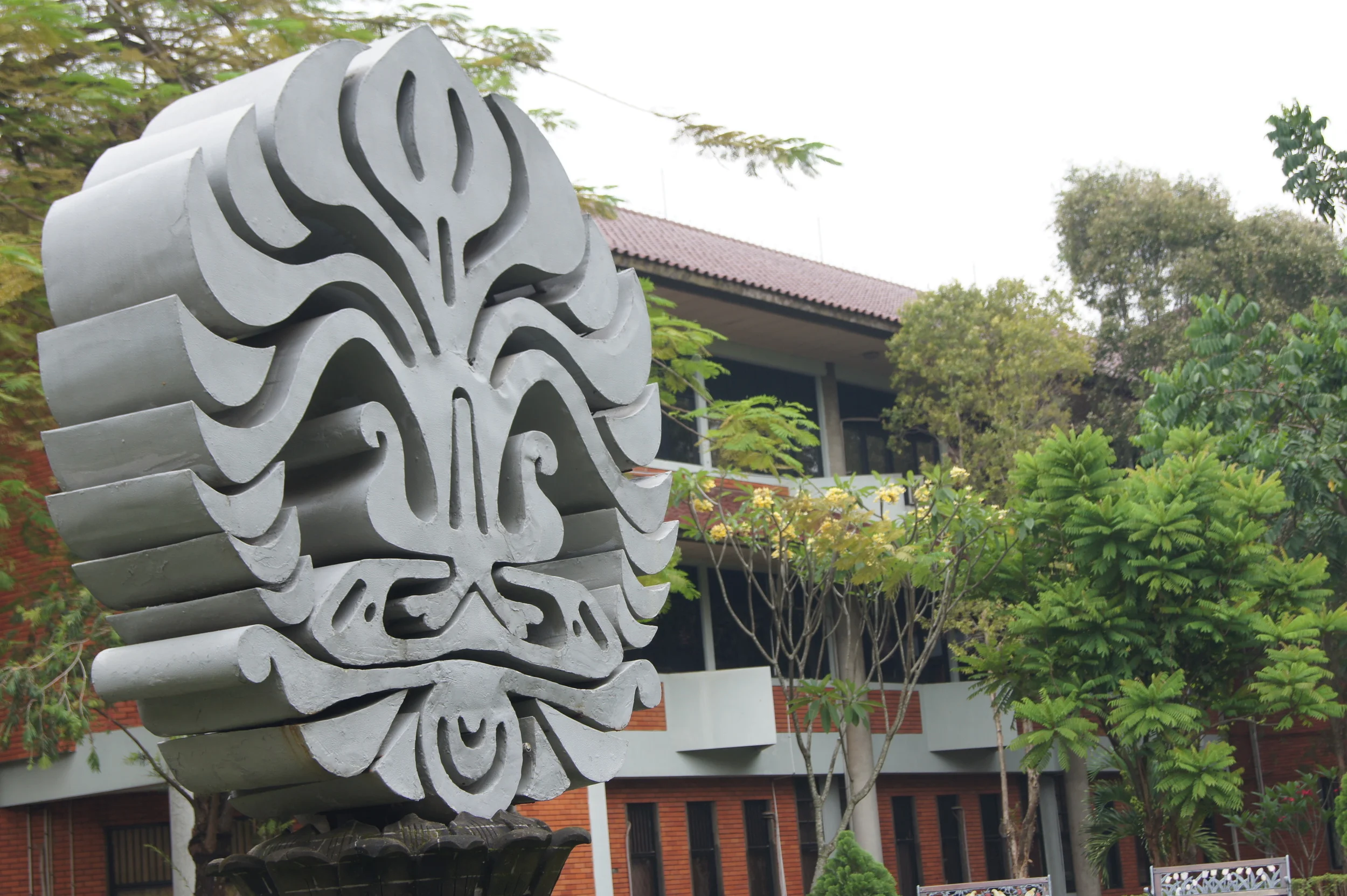



History
History
Beginning in the 1970s, a group of Americans and Indonesians recognized the need for an institution to function as a networking agent as well as a strong information and research center to foster a good cultural understanding between their countries. The embryo for cooperation between Indonesia and the United States was the establishment of the American Studies Center at the University of Indonesia.
This plaque enshrines the names of the sponsors who funded the Rawamangun building. Wherever the Center is located the plaque is there for everyone to see. It will be honored next to the new plaque in their future location of Depok.
A Brief History of the Center
1970 A need for specialists in area studies was identified.
1975 The Department of English, Faculty of Letters, University of Indonesia introduced American Studies as an undergraduate concentration.
1976 A two-week workshop sponsored by USIS resulted in a proposal for the establishment of an inter-faculty, interdisciplinary American Studies Institute (later named American Studies Center) at the University of Indonesia.
1977-1979 Preparations to start an American Studies program at a graduate level.
1980 Fundraising drive to build an American Studies building on the premises of the faculty of Letters on the University of Indonesia campus in Rawamangun, East Jakarta.
1981 MA program in American Studies started.
1982 The construction of the American Studies building at Rawamangun with major contributions from Indonesia and American business communities.
1984 The inauguration of the American Studies building.
1985 The Center held lectures and seminars for the general public
1987 The housing of the Center in temporary quarters in Salemba, Central Jakarta, due to the relocation of the University of Indonesia to the new Depok campus, South Jakarta.
1989 One-day symposium on doing business in the U.S. held at the university rectorate, at Depok, featuring Ambassador J.C. Monjo as one of the key speakers.
1991 Reaching out America: Text and Context Lecture Series continues.
1992 The Center offers courses for young diplomats from the Indonesian Ministry of Foreign Affairs.
2003 The Salemba Discussion Program was launched.
2004 The American Film Festival and Discussion Program and American Foreign Policy Colloquium began. Workshop/Training Program continues with different themes for the public.
"The American Studies Program at UI widened my horizon in understanding democracy and human rights. American literature tells me a lot about how one improves one’s life and achieves what one dreams about, and it makes a meaningful contribution to my life.”
-Sutarto, class of 84, Lecturer at the University of Jember, East Java-
"The knowledge that I got from the American Studies Program has come in handy for my career as a writer. And when I started my doctoral program, what I studied in the program fed into my dissertation, in which I discuss individualism in the light of Indonesian culture and Islamic values. I truly feel that studying American culture has helped me to better understand my own culture."
-Hj. Sofia Rangkuti Hasibuan, class of 89, writer.-

Background
Background
“WE ARE PEOPLE WHO LOVE TO DO THE THINGS WE DO. WE BELIEVE IN OUR WORKS WILL PUSH INDONESIA INTO A BETTER CONDITION.”
Entering the twenty-first century one can anticipate the development of a world economy in which international interdependence becomes the dominant feature. We are entering a tripolar world, where U.S., Europe and Asia will be the motors of growth. In this newly Configured world economy, Indonesia is to play a vital role. In fact, The Economist (October 31, 1994) predicts that Indonesia will be one of the top five leading economies as the Pacific Rim reaches its potential.
A key ingredient to international economic and political cooperation is cultural understanding between countries. Ample knowledge of the prevalent values and norms in the country one is trading with both enhances trade ties and strengthens cooperative relationships.
The American Studies Center promotes the establishment of high quality collection of American research and information which constitute as an international archive for American civilization.
The American Studies Center will be able to facilitate the development of experts in the area and provide resources to support research, teaching, and other activities. The development of this center of excellence on the study of the United States will make a meaningful contribution to the creation of trained scholars and future cohort of leaders in Indonesia.
The expansion of intercultural activities and certificate programs within the center will contribute to better policy making by enhancing the understanding of issues in Indonesian/American political, social, cultural, and economic affairs.

Vision & Mission
Vision & Mission
The Vision
- In 1994 The University of Indonesia has established the American Studies Center for the expansion of intercultural activities such as increased research programs, communication programs and cultural events.
- A lot of people will benefit from the Center’s activities which will increase relation between the business and academic worlds for the purpose of enhancing US-Indonesia cross-cultural understanding and economic cooperation.
The Mission
- To foster the growth of the American Studies Center of the University of Indonesia as a strategic and prominent institution for the enhancement of cross cultural understanding between Indonesia and the United States.
- To improve the quality of the center as a more effective catalyst for cross cultural relations and as a sustainable resource capable of offering its services to interested parties from both countries.
- The American Studies Center promotes the establishment of high quality collection of American research and information which thus constitute as an international archive for American civilization.
- The American Studies Center will facilitate the development of experts in the area and provide resources to support research, teaching, and other activities. In addition, some benefits will accrue from the Center’s communication program which will function in bridging Indonesian-American cultural relations.